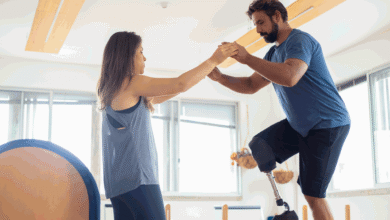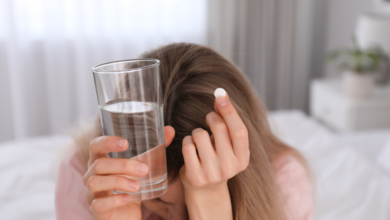What to Avoid When Taking Low Dose Naltrexone (LDN)?

What to Avoid When Taking Low Dose Naltrexone?
Low Dose Naltrexone (LDN) is a medication that has been gaining popularity in recent years as a potential treatment for a variety of conditions, including multiple sclerosis, fibromyalgia, and Crohn’s disease. According to a study published in Clinical Rheumatology in 2014, LDN may be a promising treatment option for chronic pain. The study found that LDN was associated with significant reductions in pain and improvements in physical functioning in patients with fibromyalgia, a chronic pain condition. LDN was also found to be well-tolerated and safe for long-term use.
While more research is needed to confirm these findings, LDN may offer a promising alternative for those suffering from chronic pain. LDN works by blocking the effects of opioids in the brain, which can help regulate the immune system and reduce inflammation. However, as with any medication, there are certain things you should avoid when taking LDN to ensure that you get the best possible results and avoid potential side effects. In this article, we will discuss what to avoid when taking low-dose Naltrexone.
-
Opioid Medications
One of the primary effects of LDN is that it blocks the effects of opioids in the brain. If you are currently taking opioid medications for pain relief, it is important to speak with your doctor before starting LDN. Taking LDN while also taking opioids can lead to withdrawal symptoms and other unwanted side effects. Your doctor may recommend that you gradually reduce your opioid medication before starting LDN.
A study published in the American Journal of Gastroenterology found that LDN therapy improved active Crohn’s disease in patients who were not taking concurrent opioid medications. The study suggests that LDN therapy may be a viable alternative for patients who are unable to tolerate traditional therapies or who do not respond well to them.
-
Immunosuppressive Medications
LDN has been shown to have immune-modulating effects, which means that it can help regulate the immune system. If you are currently taking immunosuppressive medications, such as corticosteroids or methotrexate, it is important to speak with your doctor before starting LDN. Taking LDN while also taking immunosuppressive medications can lead to unwanted interactions and potential side effects.
-
Alcohol and Street Drugs
It is important to avoid alcohol and street drugs when taking LDN. Drinking alcohol while taking LDN can lead to increased liver toxicity and other unwanted side effects. Similarly, taking street drugs while taking LDN can lead to interactions and potentially dangerous side effects.
-
Certain Foods and Supplements
LDN can have interactions with certain foods and supplements. For example, taking LDN with high-dose vitamin C supplements can reduce its effectiveness. It is important to speak with your doctor or a qualified healthcare provider before starting LDN to determine what foods and supplements you should avoid.
-
Pregnancy and Breastfeeding
LDN has not been extensively studied in pregnant or breastfeeding women. It is important to avoid LDN during pregnancy and breastfeeding unless recommended by a qualified healthcare provider. LDN may have unknown effects on the developing fetus or on breast milk. If you are pregnant or breastfeeding, speak with your doctor before considering LDN therapy.
-
Abruptly Stopping LDN
If you have been taking LDN for a period of time, it is important to speak with your doctor before abruptly stopping the medication. Stopping LDN suddenly can lead to withdrawal symptoms and potentially dangerous side effects. Your doctor may recommend that you gradually reduce your LDN dosage before stopping the medication altogether.
-
Self-Medicating
It is important to avoid self-medicating with LDN. LDN is a prescription medication and should only be taken under the guidance of a qualified healthcare provider. Self-medicating with LDN can lead to unwanted side effects and potential interactions with other medications.
Conclusion
So, What to Avoid When Taking Low Dose Naltrexone?
In conclusion, LDN is a promising medication for a variety of conditions, but it is important to take certain precautions to ensure that you get the best possible results and avoid potential side effects. When taking LDN, it is important to avoid opioid medications, immunosuppressive medications, alcohol, street drugs, certain foods and supplements, and self-medicating. Additionally, if you are pregnant or breastfeeding, speak with your doctor before considering LDN therapy. If you experience any unwanted side effects while taking LDN, speak with your doctor immediately.
Reference:
- Smith JP, Stock H, Bingaman S, Mauger D, Rogosnitzky M, Zagon IS. Low-dose naltrexone therapy improves active Crohn’s disease. Am J Gastroenterol. 2007 Apr;102(4):820-8. doi: 10.1111/j.1572-0241.2006.01039.x. Epub 2007 Feb 20. PMID: 17311606.
-
Younger J, Parkitny L, McLain D. The use of low-dose naltrexone (LDN) as a novel anti-inflammatory treatment for chronic pain. Clin Rheumatol. 2014 Apr;33(4):451-9. doi: 10.1007/s10067-014-2517-2. Epub 2014 Feb 15. PMID: 24526250.











